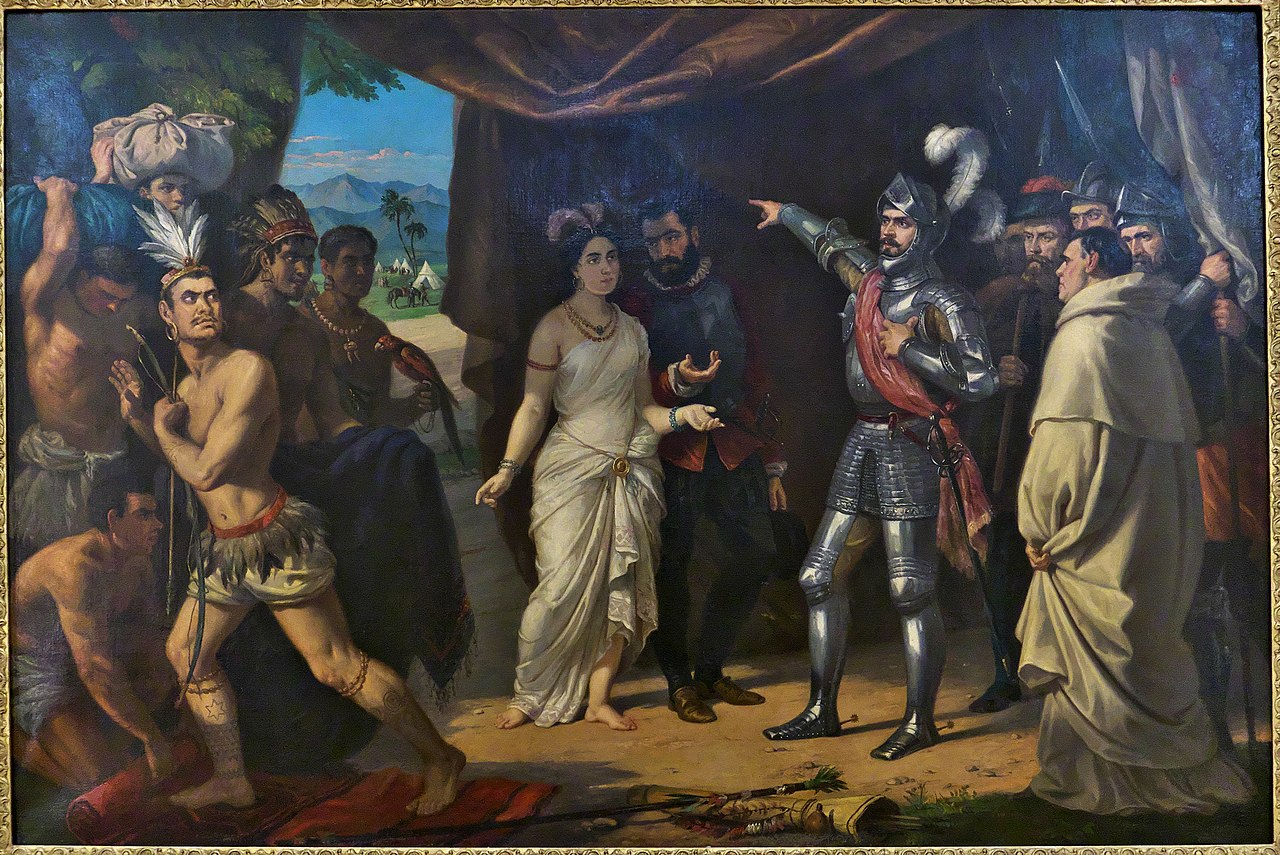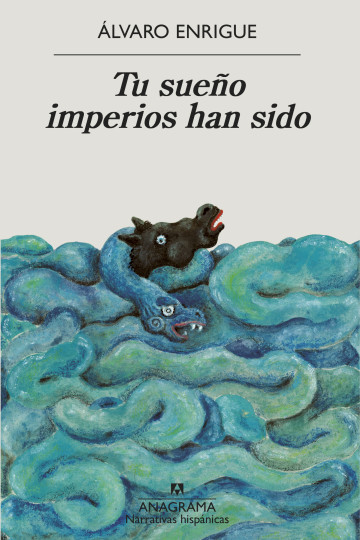
A clash of empires and cultures
In his latest novel, Mexican writer Álvaro Enrique reimagines the encounter between Hernán Cortés and Moctezuma in 1519
Tu sueño imperios han sido (Thy Dream Empires Have Been). These verses by Spanish poet Calderón de la Barca serve Mexican author Álvaro Enrigue as a title to his latest novel, a story that fantastically recreates the encounter between Hernán Cortés and Moctezuma on Nov. 8, 1519, an encounter that would highlight the confrontation between two empires, two cultures, two languages, two worldviews — that of Spain (Carlos I) and the one dominated by Moctezuma from his palace in Tenochtitlán.
"It's not a documentary novel and it doesn't want to be a history lesson... it's more of a game and I hope the reader has fun and accepts the journey," the renowned Mexican author, winner of the Herralde Novel Prize in 2013, told Mexican magazine Milenio.

Giving free rein to the imagination, Erigue recreates the moment when Moctezuma receives the visit of a small delegation commanded by the Spanish conquistador Hernán Cortés in Tenochtitlan, accompanied by nine captains, his two translators — the friar Aguilar and Malinalli, (Malinche) interpreter and lover — his troops and his horses. There, they are entertained with a meal by Princess Atotoxtli, sister and wife of Moctezuma, accompanied by the priests, and later the emperor Moctezuma himself received Cortés. Some had never seen horses in their lives, the others had never tasted chocolate. The Spaniards were well received in the city, but one of Cortés' subordinates, Jazmín Caldera, does not dare to tell him that the worry had never been how to get to Tenochtitlán, but how to get out once they were inside.
What happened? What could have happened? Where does the truth end and the legend begin? How does one approach history from fiction? All these questions are what Enrigue tries to answer with his imagination. In a novel that mixes mysteries, violence, lust for power and dreams, Enrigue tries to give a possible version of the encounter that changed the history of the world.
Taking on the challenge of imagining what happened that day is basically the author's response to the proliferation of bibliographies on that first contact that have appeared in recent years.
"I read them all, and it has changed a lot the point of view about everything that happened based on documents such as the 1521 letter of Hernán Cortés and chronicles: all that is a wonderful field if you are a writer," he admitted to Milenio.
RELATED CONTENT
"The novel, as a whole, privileges the vision of Montezuma's tottering empire and the novelist strives to humanize the Indigenous environment of which the crossing of different pre-Columbian languages generates an overabundance of toponyms and anthroponyms and, together with this, the denunciation of bloody ceremonial practices and even manifestations of cannibalism," notes a book review in El Correo Gallego.
Born in Guadalajara, Mexico, in 1969, Enrigue won the Joaquín Mortiz First Novel Prize in 1996 with La muerte de un instalador, a novel that tells the story of an artist who, without realizing it, becomes the work of his patron, and which consolidated his projection in Mexico as an author of a new generation.
In 2013 he won the Herralde Novel Prize with Muerte súbita (published in English as Sudden Death), a novel with Borgesian influences that moves between fantasy and history that deals with four tennis balls made from the hair of the decapitated Anne Boleyn, a fictional tennis match between the Italian painter Caravaggio and the Spanish poet Francisco de Quevedo, the conquest of Mexico led by Cortés, among other things.
In addition to his work as a writer, he has taught creative writing at several universities in the United States, including Columbia, Princeton and Maryland, where he also earned a doctorate in Latin American literature.
He currently lives between Mexico City and New York, where he has been an associate professor of Romance Languages and Literatures at Hofstra University.












LEAVE A COMMENT: